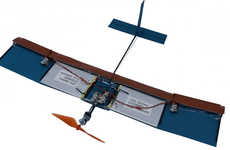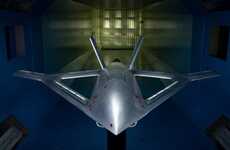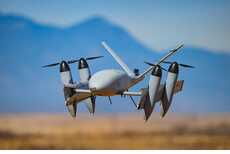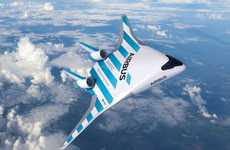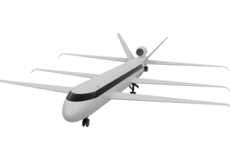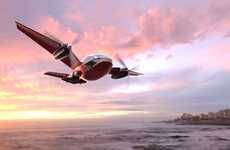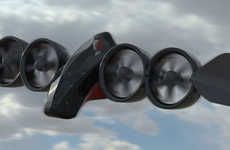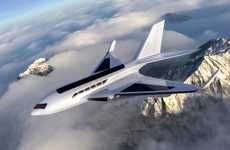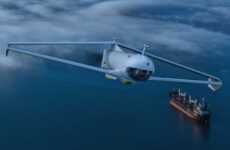
This Small Unmanned Aerial Vehicle Shifts Weights Within Its Wings
Rahul Kalvapalle — August 5, 2016 — Autos
A talented aerospace engineering graduate from the University of Texas at Arlington has managed to make use of an execute a highly innovative approach towards making airplanes more streamlined and fuel-efficient by inventing a small unmanned aerial vehicle that employs a brilliantly unique technique to execute turns.
What's great about this small unmanned aerial vehicle is the fact that it is able to turn by simply shifting the weights within its wings.
Sampath Reddy Vengate came up with the idea after designing an aircraft that he noticed had trouble staying on path when carrying a payload, which made him realize the utility of weight-shifting technologies.
This small unmanned aerial vehicle is truly a trailblazing design that could lead to further applications of streamlined aircraft engineering, with the end result being fuel efficiency and cost savings.
What's great about this small unmanned aerial vehicle is the fact that it is able to turn by simply shifting the weights within its wings.
Sampath Reddy Vengate came up with the idea after designing an aircraft that he noticed had trouble staying on path when carrying a payload, which made him realize the utility of weight-shifting technologies.
This small unmanned aerial vehicle is truly a trailblazing design that could lead to further applications of streamlined aircraft engineering, with the end result being fuel efficiency and cost savings.
Trend Themes
1. Weight-shifting Technologies - The use of weight-shifting technologies in aircraft design presents disruptive innovation opportunities for fuel efficiency and cost savings.
2. Streamlined Aircraft Engineering - The development of streamlined aircraft engineering techniques opens up new possibilities for fuel-efficient and cost-effective aircraft design.
3. Unmanned Aerial Vehicles - The advancement of unmanned aerial vehicles with weight-shifting capabilities offers disruptive innovation opportunities in various industries, such as logistics and delivery.
Industry Implications
1. Aerospace - The aerospace industry can explore weight-shifting technologies to enhance aircraft performance and fuel efficiency.
2. Logistics - The logistics industry can benefit from weight-shifting unmanned aerial vehicles to optimize delivery processes and reduce fuel consumption.
3. Aviation - The aviation industry can adopt streamlined aircraft engineering techniques to improve fuel efficiency and reduce operational costs.
2.8
Score
Popularity
Activity
Freshness


